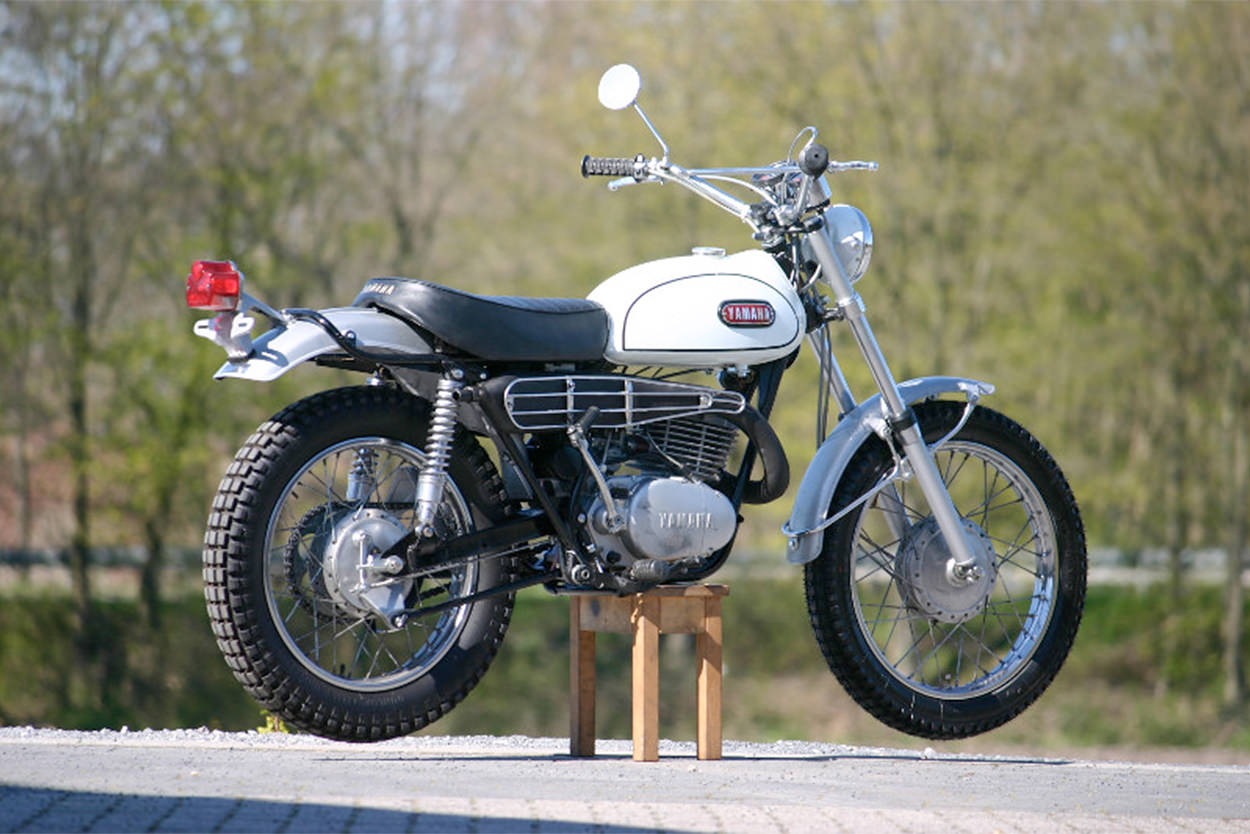
A slammed Royal Enfield Interceptor from K-Speed, a gleaming Yamaha TX750 cafe racer from Chicago, a BMW GS given the supermoto treatment, and an inch-perfect Yamaha DT-1 restoration from Germany.
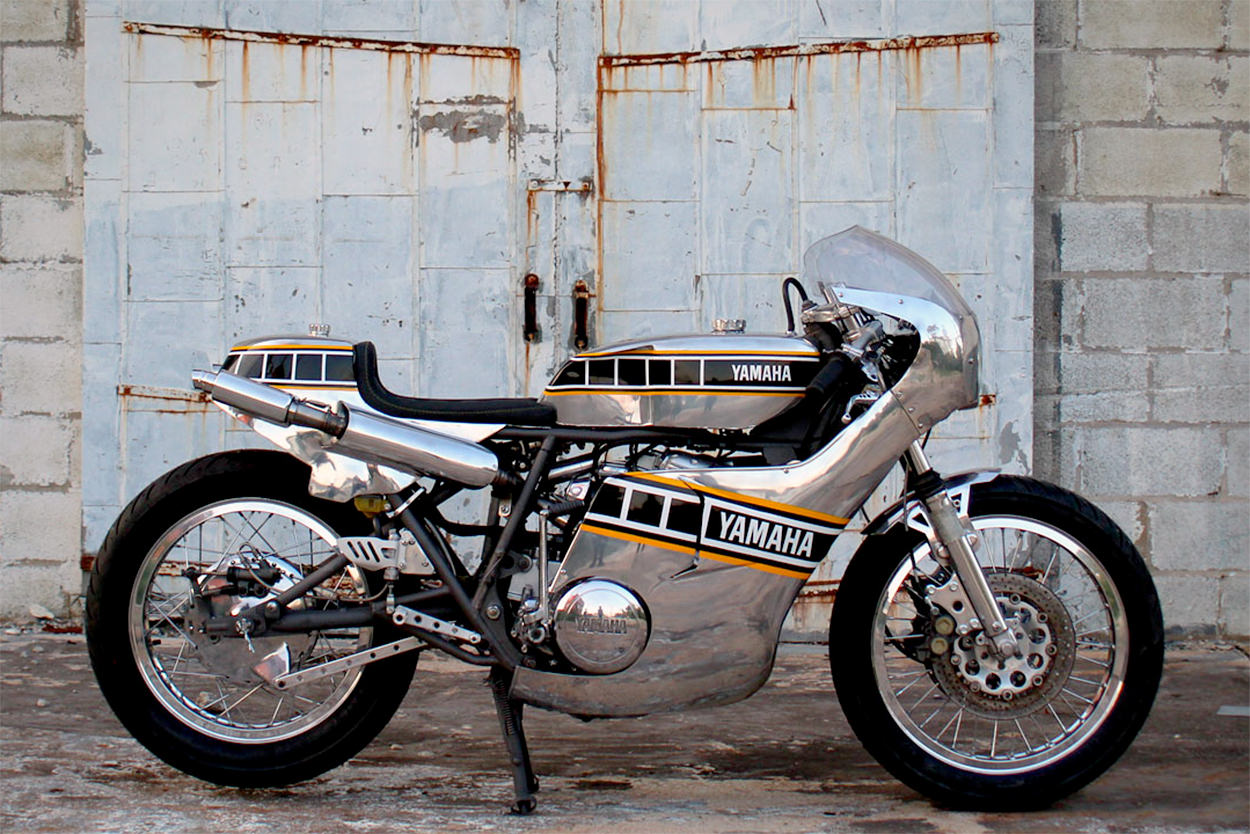
Yamaha TX750A by Ron George At a glance, the ‘speed blocks’ and perfectly formed bodywork on this Yamaha make it feel like an immaculately restored classic racer … except it’s not. It’s actually a custom TX750A—a bike that Yamaha made to replace the XS650, but ended up being a total flop.
Most builders wouldn’t touch one with a barge pole, but Chicago-based hobbyist Ron George was bold enough to have a go.
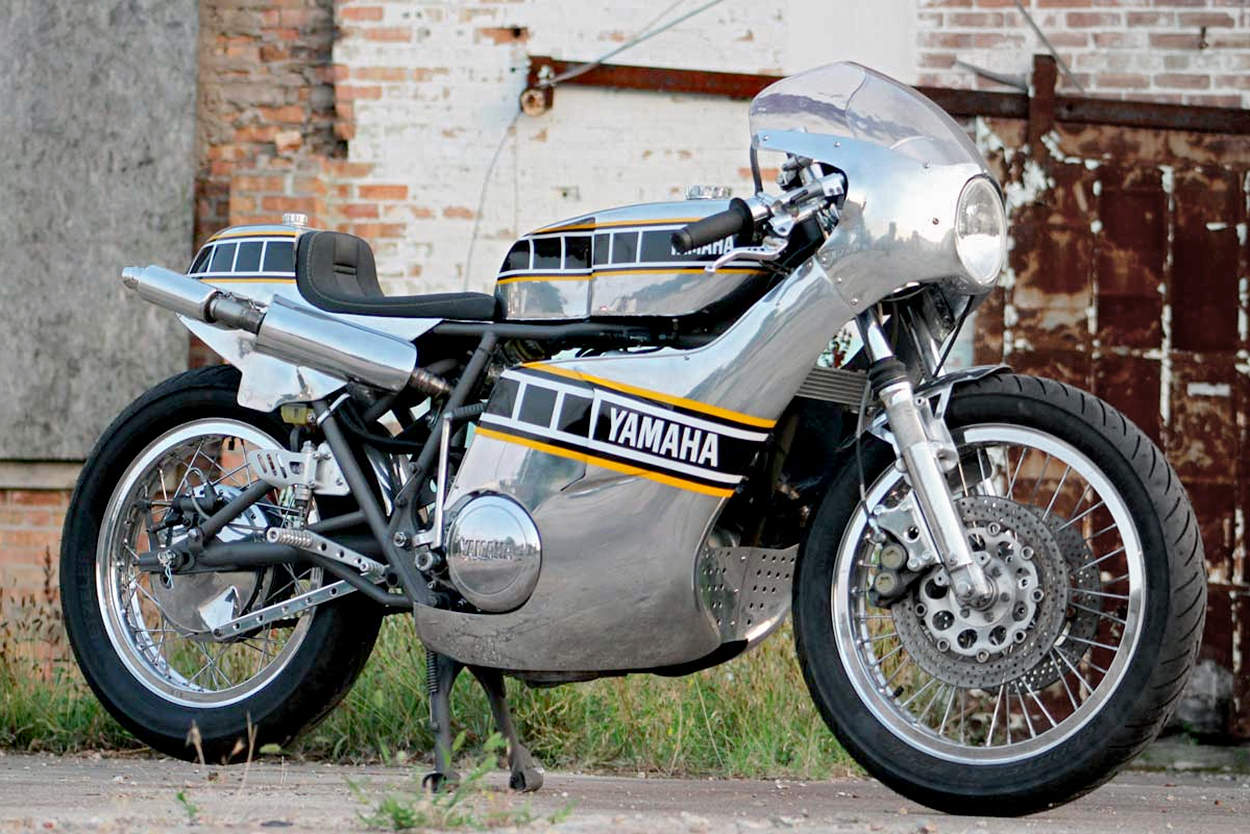
Ron got the donor from a friend, who’d picked it up as an abandoned project but decided not to go ahead with it. The TX was in pretty beat-up shape, but luckily it was a TX750 ‘A’, and not the first-gen TX that had a notorious amount of issues. And as you can probably tell, much of his inspiration came from Kenny Roberts’ iconic YZR500.
Rather than working off sketches and renders, Ron dove in head first to translate what was in his head into metal. All the bodywork is custom—and that’s especially remarkable,because this was Ron’s first time shaping aluminum. He didn’t stop there though, and the Yammie is sporting under-the-hood upgrades too.
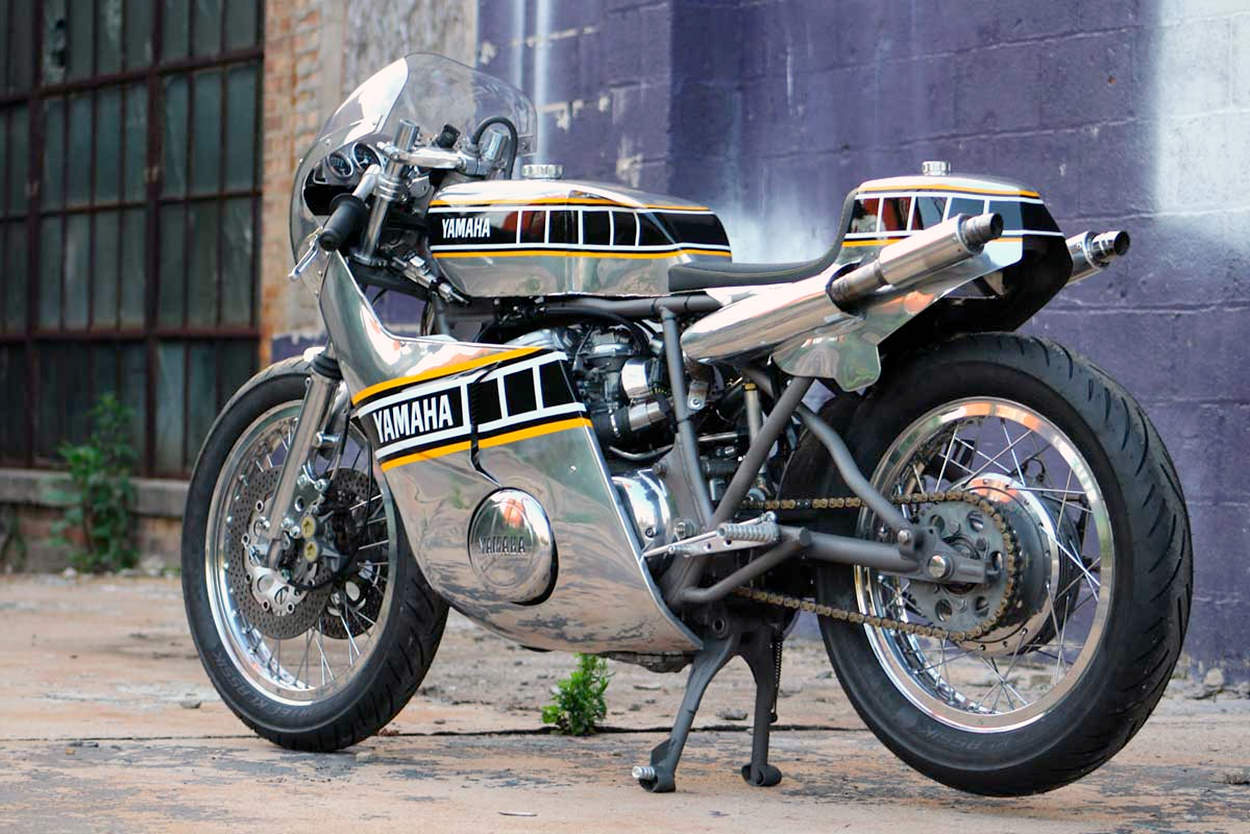
The forks have been rebuilt, and there’s a completely custom (and adjustable) mono-shock setup out back, held up by a Yamaha R6 shock. The front brakes are twin R6 calipers with Suzuki rotors, and the rear drum brake has been converted to a hydraulic setup. Yes, really.
Ron did almost everything himself, from rebuilding the carbs and rewiring the bike, to adding in an oil cooler and TIG-welding a stainless steel exhaust system. He even tirelessly polished all the metal and laid down the graphics, outsourcing only the seat upholstery. Can you say ‘commitment?’ [More]
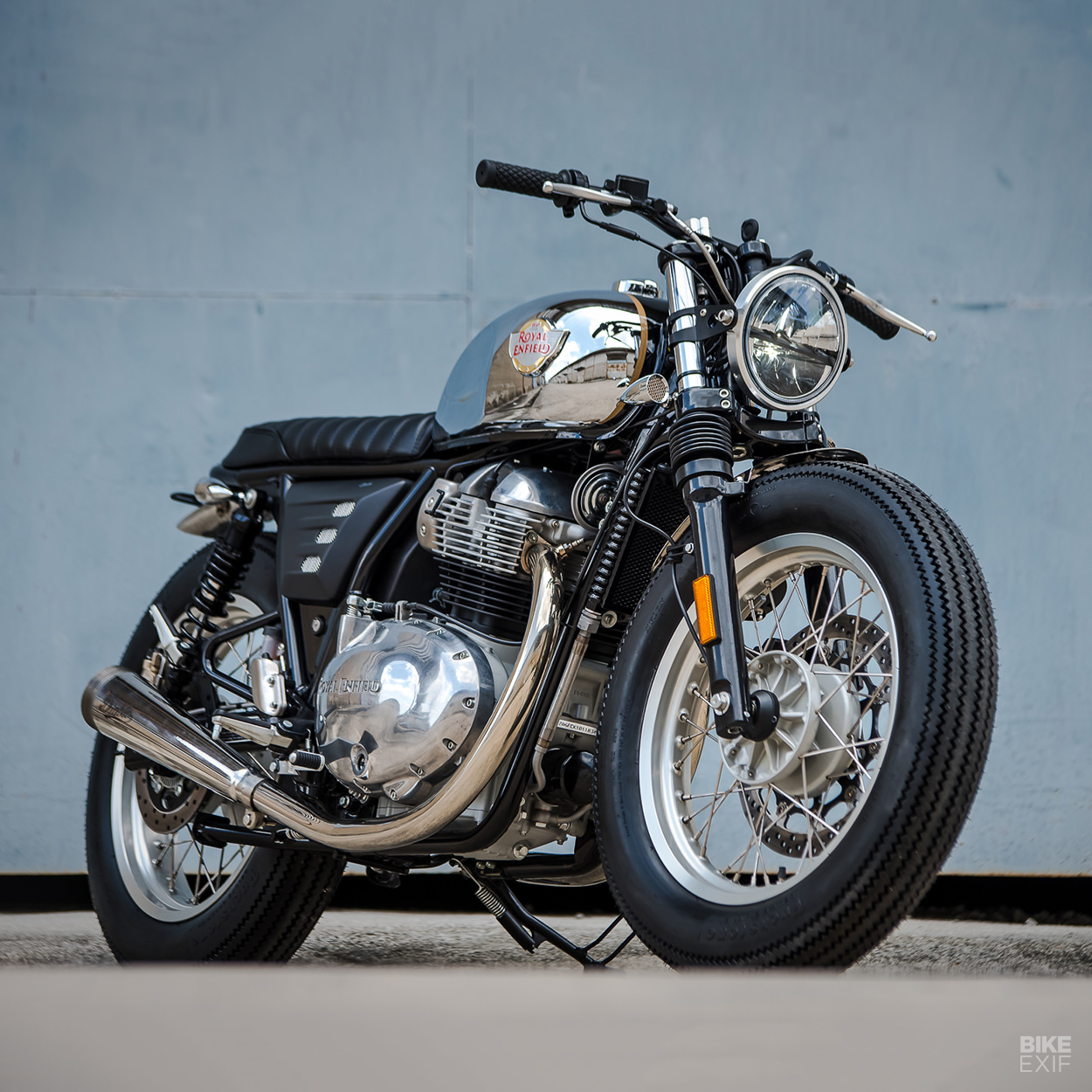
Royal Enfield Interceptor by K-Speed Royal Enfield’s new parallel twin Interceptor is still a relative newcomer on the scene, but it’s already making waves. It’s one of those rare bikes that looks great out the box, looks even better with a few tweaks, and is ripe for even heavier custom work.
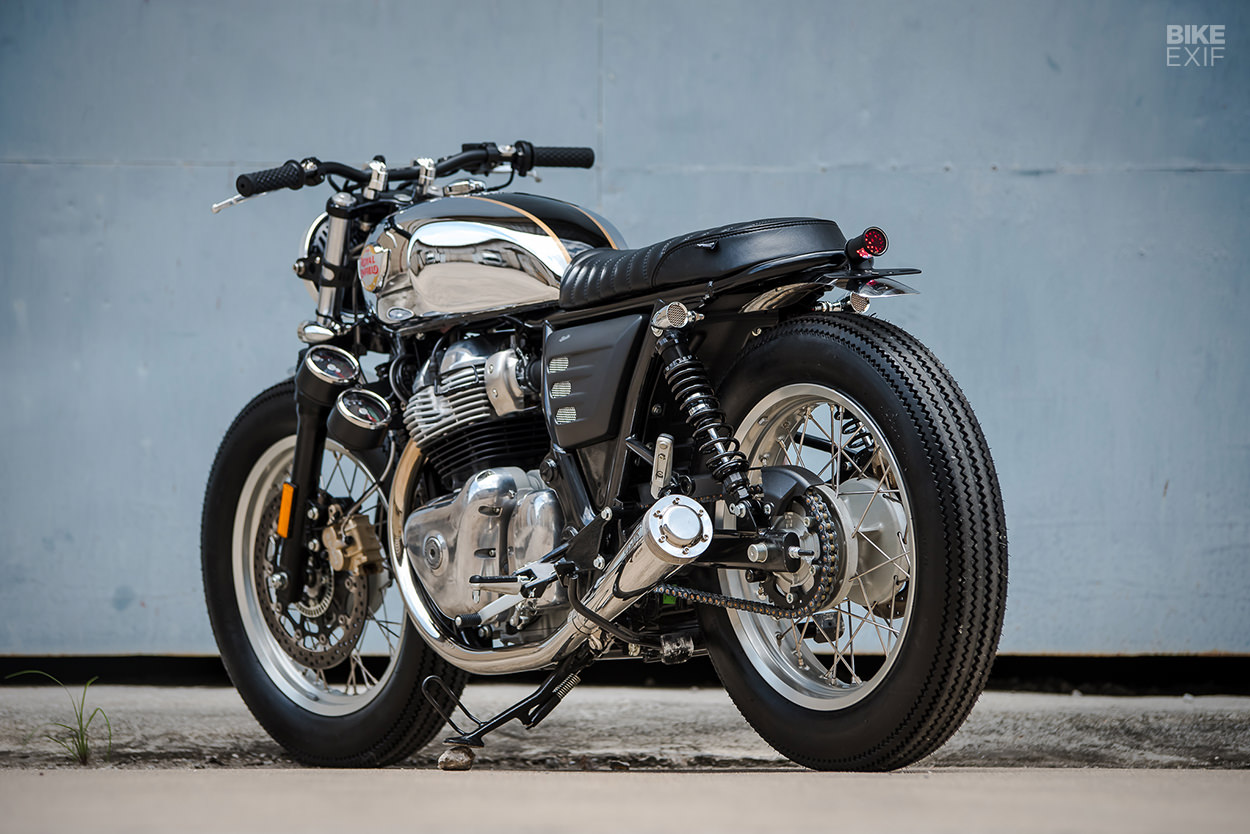
This Interceptor lands somewhere in the middle. It’s a showpiece for Thai super-shop K-Speed, who have loaded it with a full range of bolt-on Enfield parts they’ve just developed. The only fabrication here is a cut-and-shut on the rear of the frame—but everything else you see is doable with the right tools and a bit of time.
Most of the parts are from K-Speed’s ‘Diablo’ catalog. That includes the rear fender, with its license plate bracket and LED taillight, and the seat, side panels and rear shocks. These shocks are a little shorter than stock, so K-Speed dropped the front end to match, then installed 17” wheels with vintage rubber, and a short front fender.
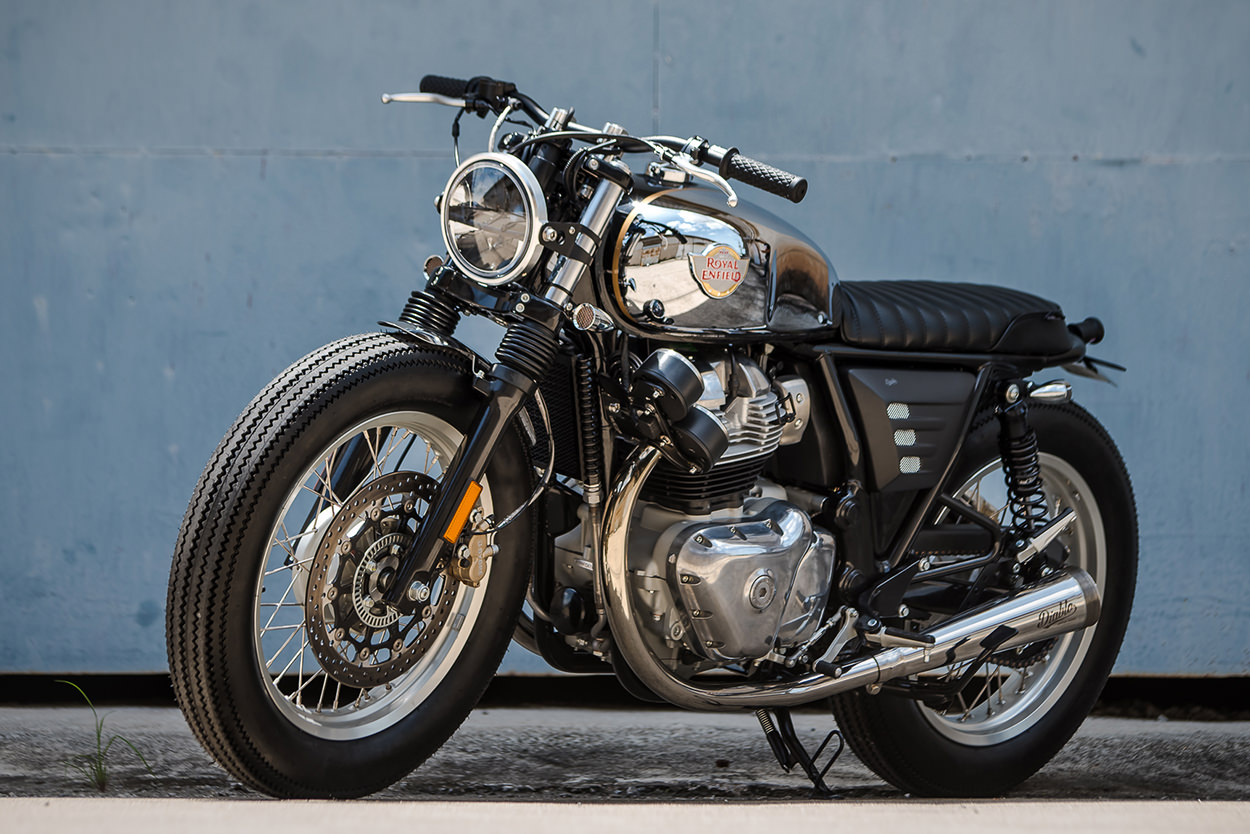
There’s also a new LED headlight, LED turn signals all round, and a set of low and tight handlebars with new grips and controls, and mini-switches wired in. The speedo’s sitting on a relocation bracket to the left of the fuel tank, just to clean up the cockpit even more. A full twin Diablo exhaust system rounds out the package. [K-Speed]
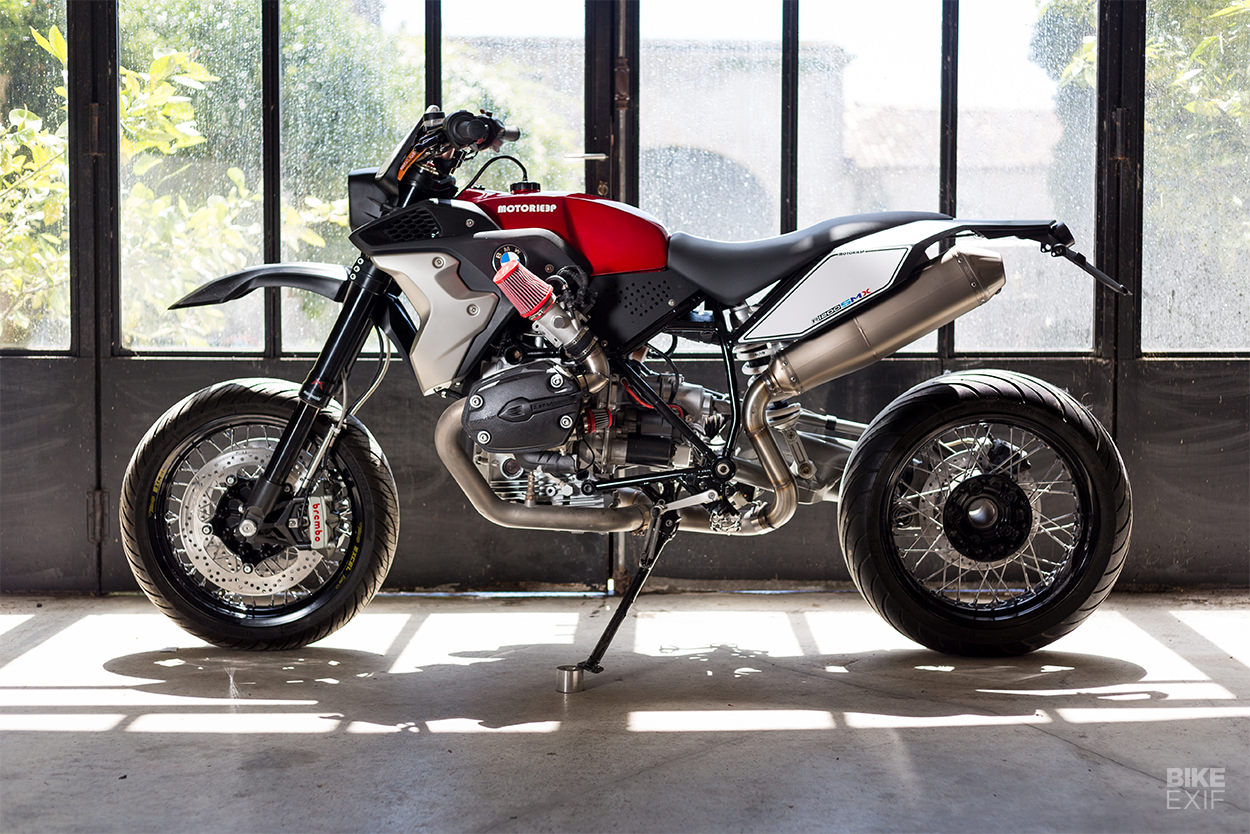
BMW R1200GS by Motorieep The big GS is one of the world’s best-selling adventure bikes, but it’s real tricky to customize. Most attempts to circumnavigate its quirky Telelever front end and complex bodywork fall flat, and few GS customs actually turn out great. Pierre at French workshop Motorieep has cracked the code though, with this wild GS-based supermotard.
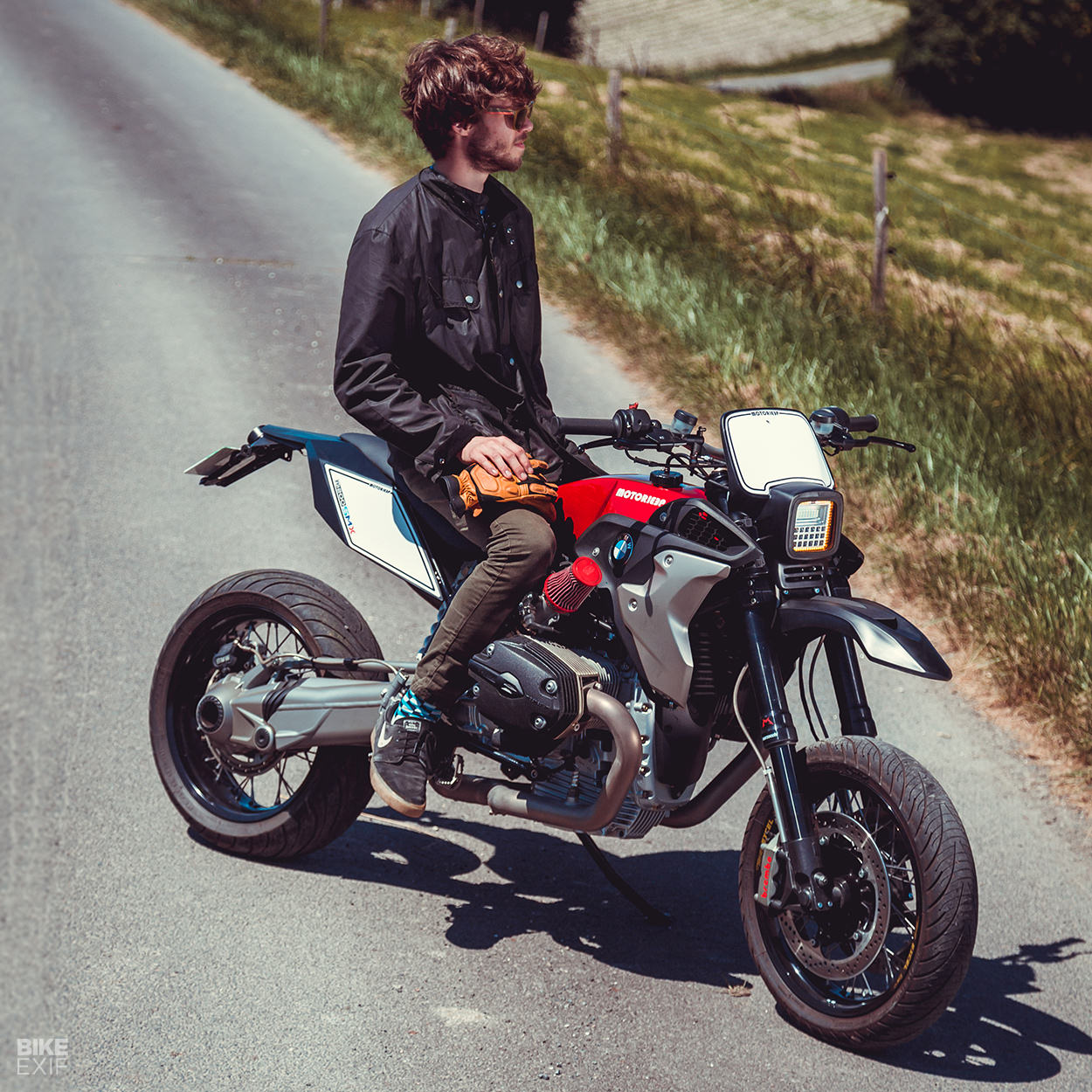
The ‘1200 SMX’ is based on a 2007 R1200GS Adventure, but there’s little of the original chunky silhouette left. It’s been transformed with a genius concoction of parts: a modified Ducati 125 Regolarita Six Days fuel tank, a set of newer R1250GS front side panels, and KTM 690 SMC rear plastics.
The tank uses an external fuel pump and only holds seven liters—but there’s space under the seat to install a secondary 10-liter reservoir.
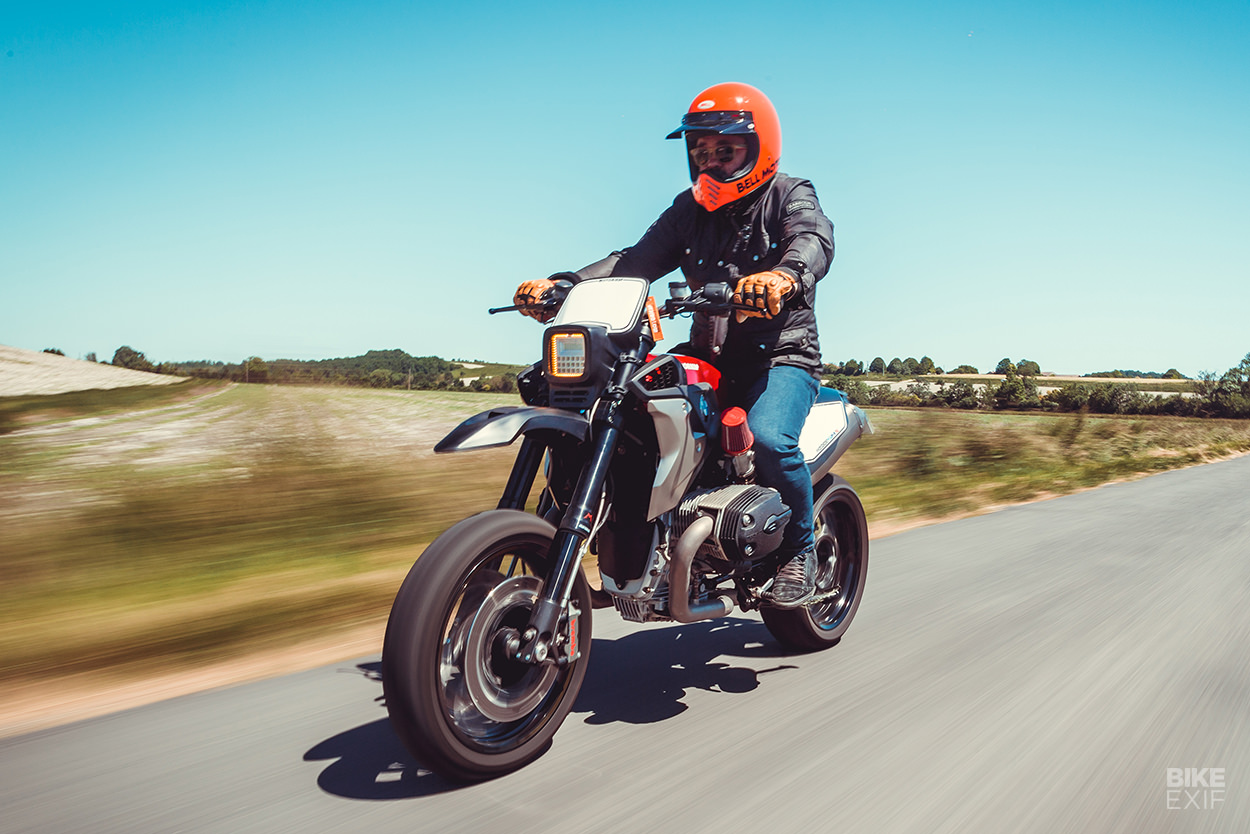
The front end’s been changed entirely, with a set of 50 mm Marzocchi upside-down forks. The rear shock’s from WP Suspension, and the brakes are from Brembo. Pierre swapped the swingarm out for one from a BMW HP2 Megamoto, and laced up a pair of 17” Excel rims.
Finishing kit includes an Acerbis headlight nacelle with LED internals, a custom speedo mount, a UFO front fender and upgraded foot pegs. Pierre also added a Lithium-ion battery, moved the fuel injectors, added a set of BMC conical filters, and built stainless steel exhaust headers that terminate with an Akrapovič slip-on.
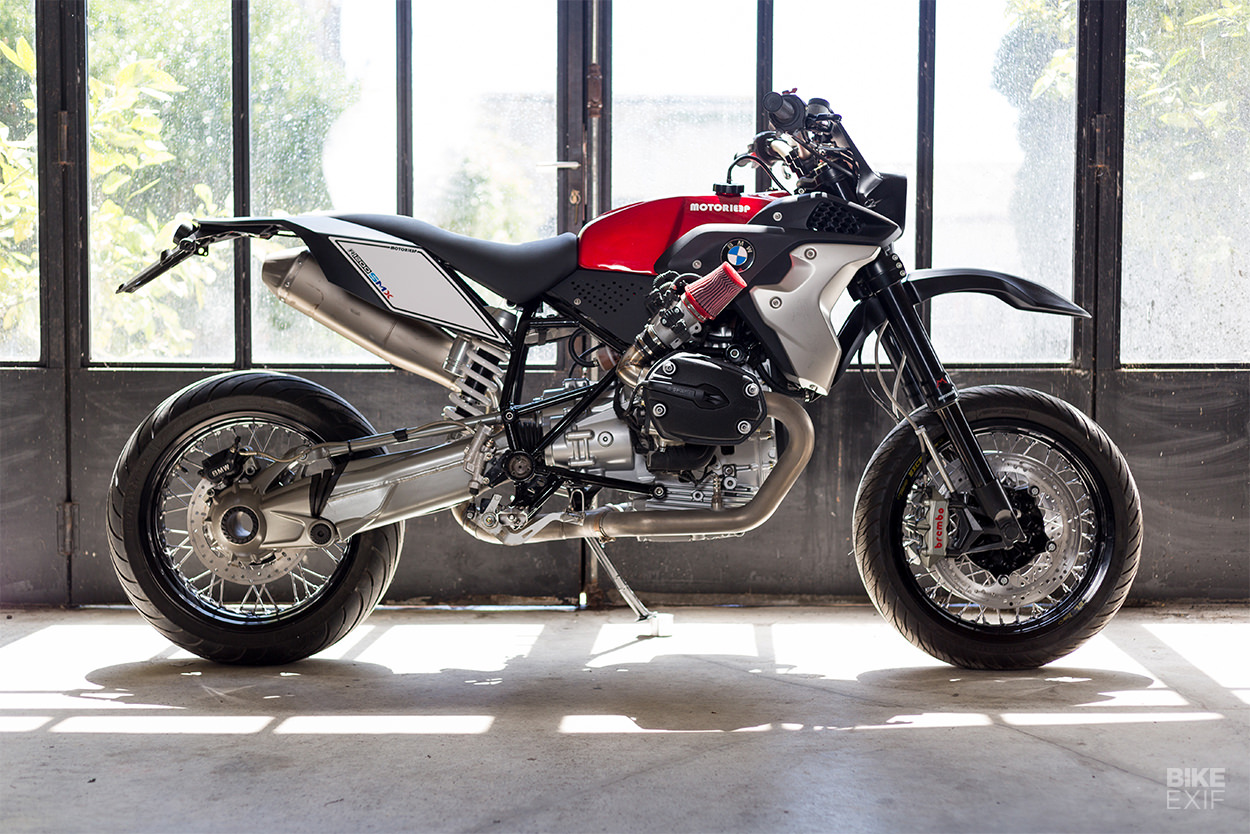
If the 1200 SMX appeals to you as much as it does to us, good news: Pierre will build you one in five weeks, provided you throw €27,000 his way. But only one, mind you … he’s limited production to three units, and two are already sold. Once that’s gone, you’ll have to wait until he designs the next-gen 1200 SMX, which will be based on the newer, liquid-cooled version of the GS. [Motorieep]
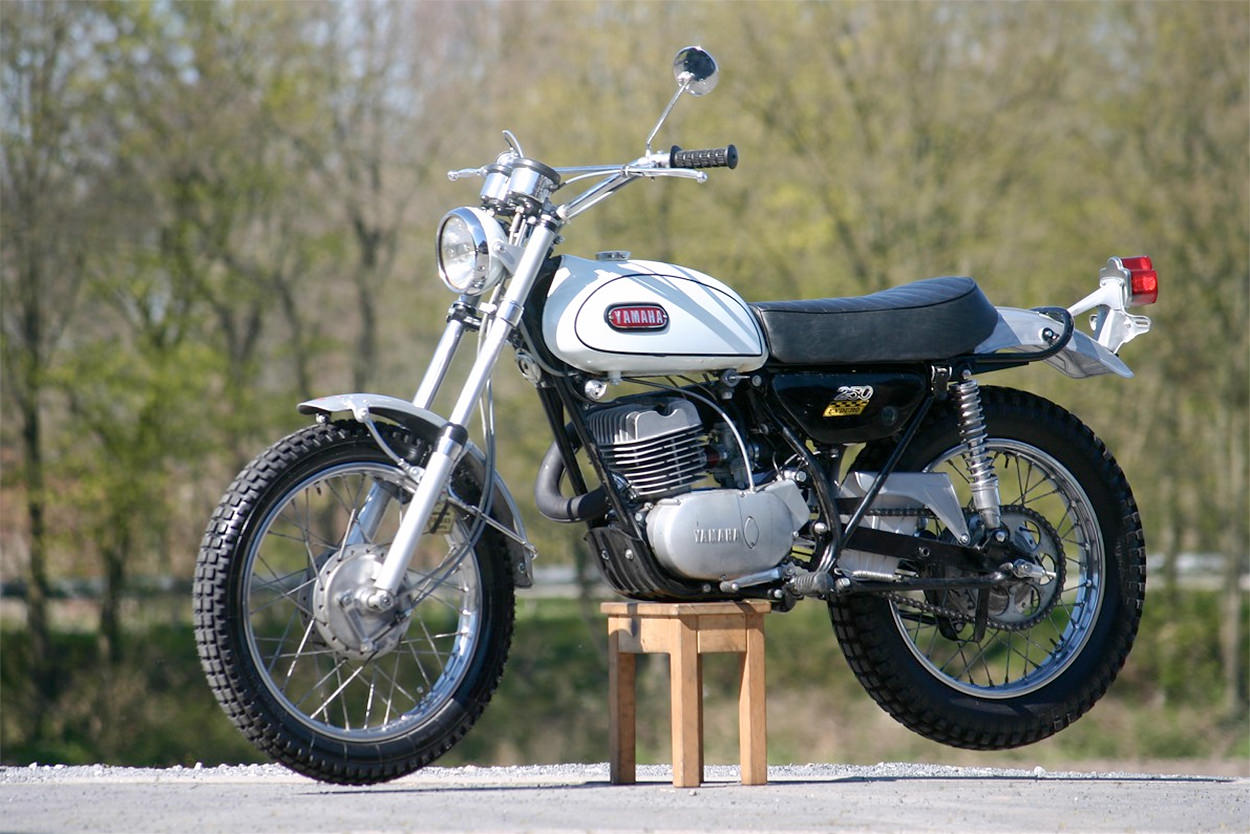
Yamaha DT-1 restoration by Peter Abelmann There’s a growing sentiment that small capacity motorcycles will save motorcycling. And when it comes to a legacy of building smaller bikes, Yamaha have some real gems scattered across their back catalog—like the charming DT-1.
First released in 1968, the DT-1 was effectively a street legal dirt bike before ‘dual sport’ was a thing. Powered by a 250 cc air-cooled two-stroke single, it was simple, solid and inexpensive.
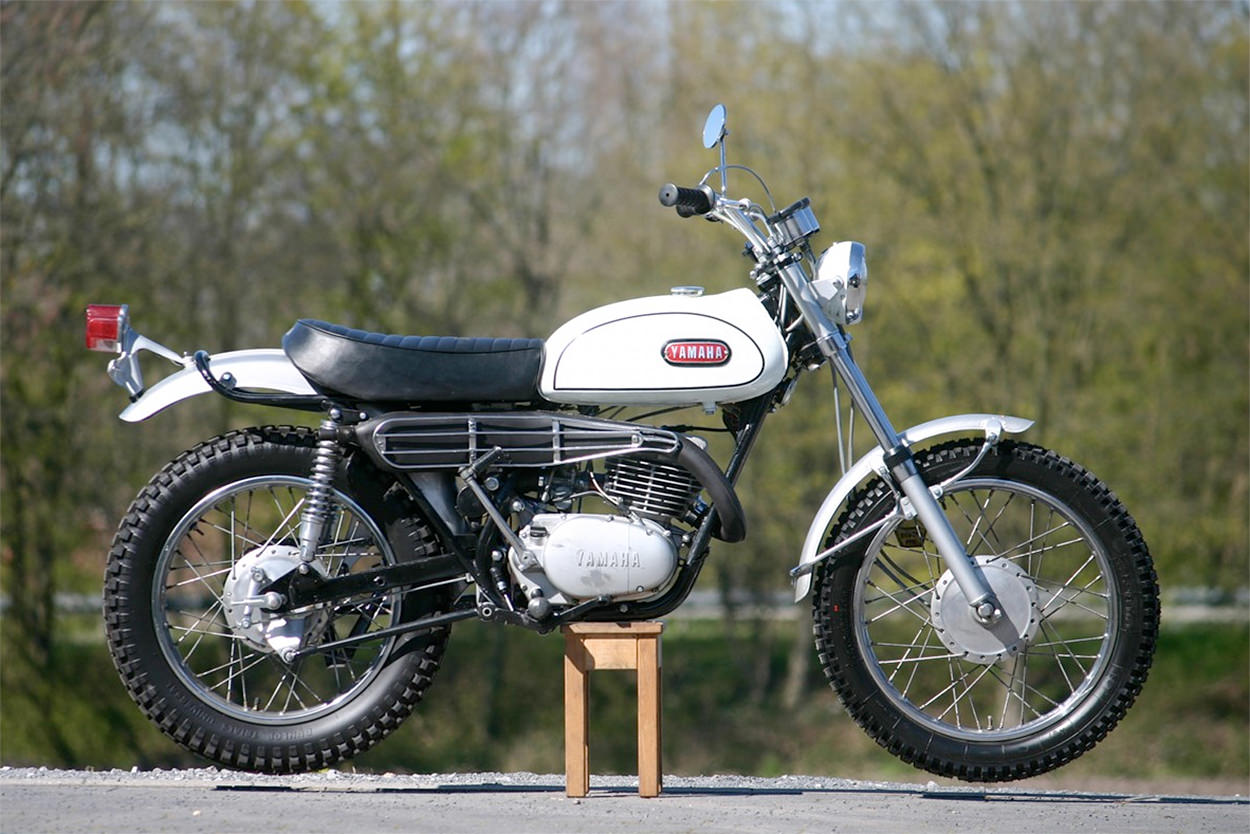
According to Peter Abelmann, a German classic Yamaha two-stroke expert, the DT-1 was never really brought into Europe. But he managed to find one that was allegedly imported for a now-deceased tennis star; it had very low mileage but hadn’t been stored well, so Peter decided to bring it back to life.
Peter started with a deep clean, which also involved battling stubborn corrosion. Then it was onto repairing parts that hadn’t survived—like a single fork stanchion that had to be swapped out for a part from Peter’s stash. The previous owner had also fitted a 21” wheel up front, so Peter sourced an OEM 19” unit and slotted it in.
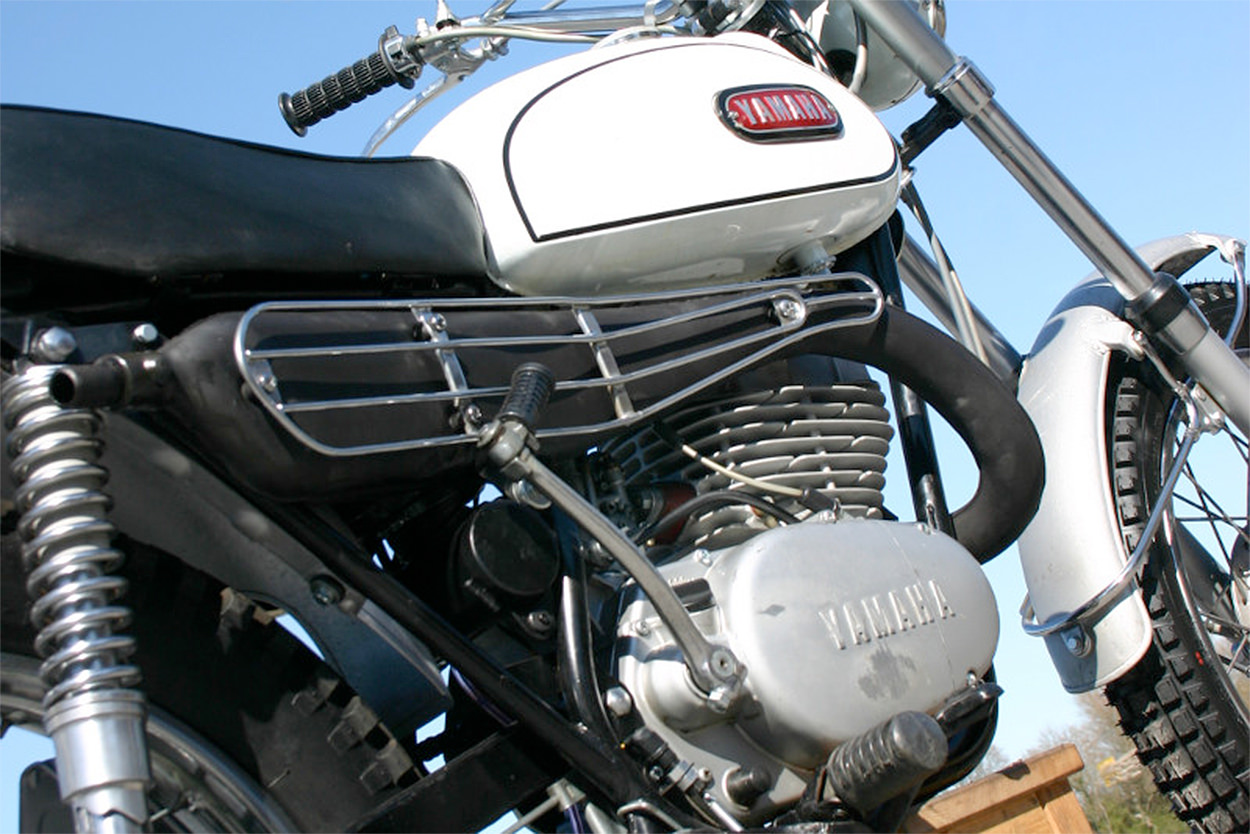
The engine was still good to go, but Peter did have to make two major changes. Somewhere along the line, the head had been swapped for a ‘Genuine Yamaha Tuning’ performance part, but it didn’t sound right, so he swapped it for an original head. And one of the cooling fins had broken, so he had a friend repair it with aluminum.
Some parts were repainted (like the exhaust), while others were simply touched up. The end result takes us right back to the late 60s, with just enough patina to keep things authentic. [Via]
